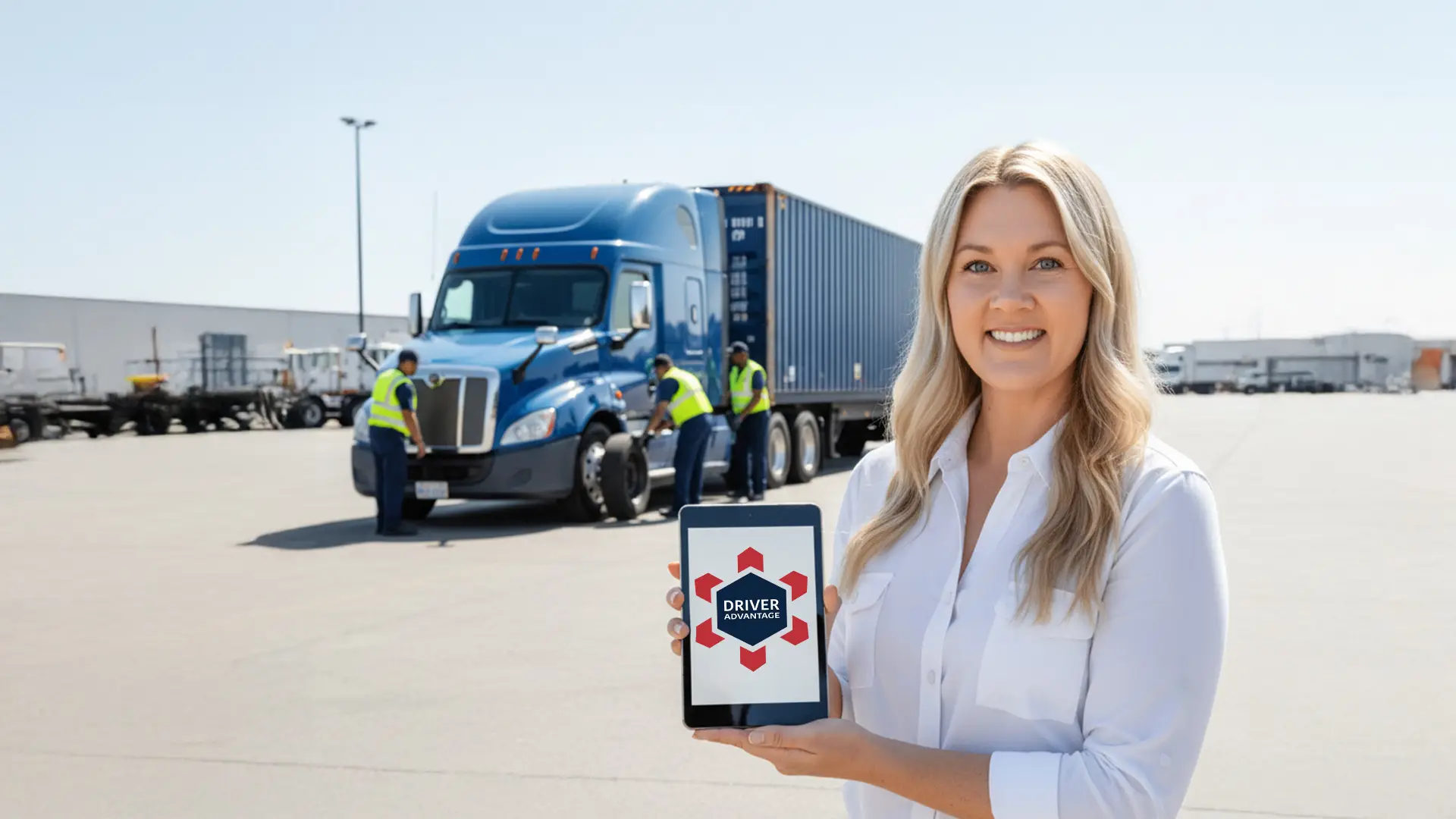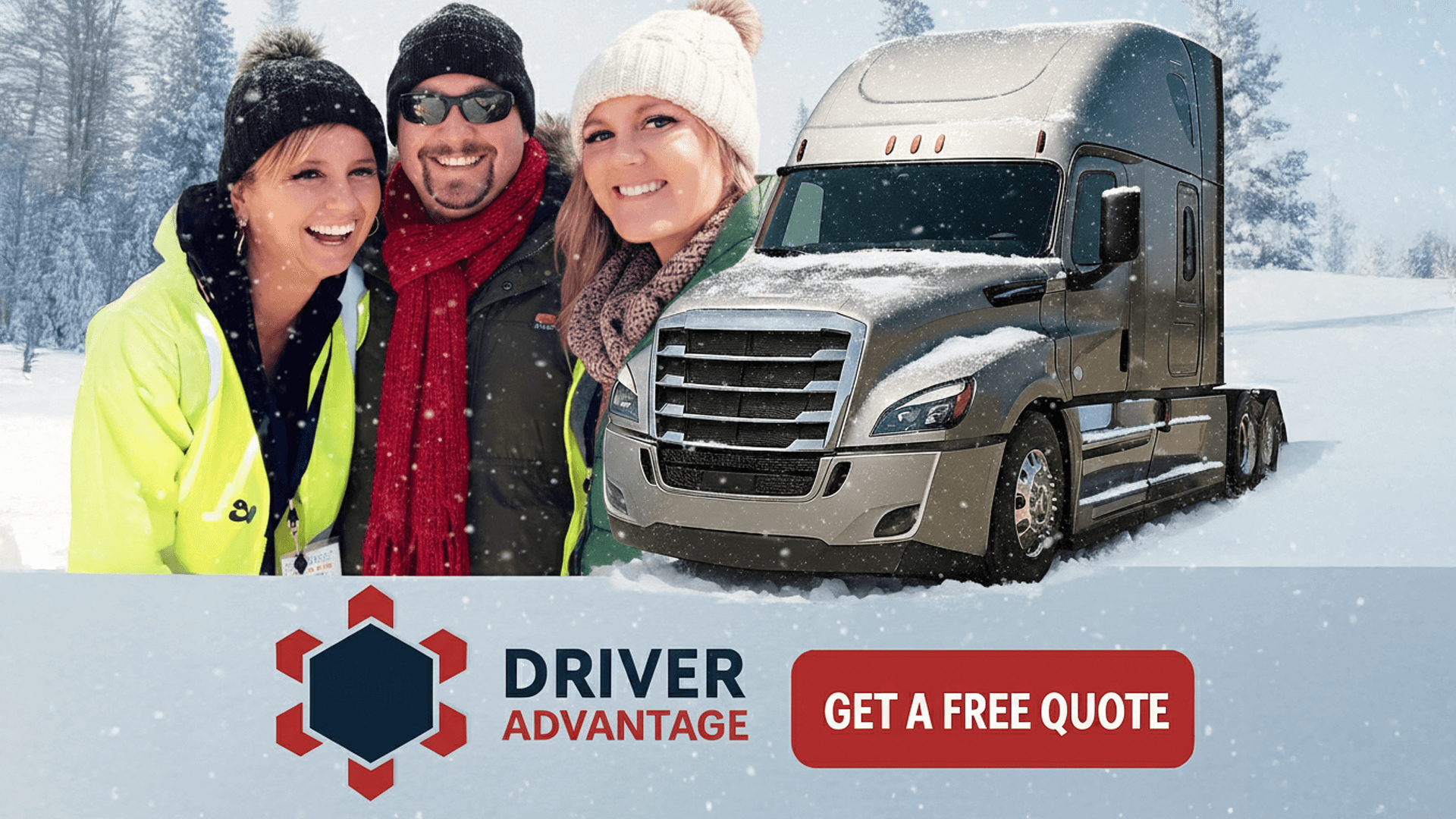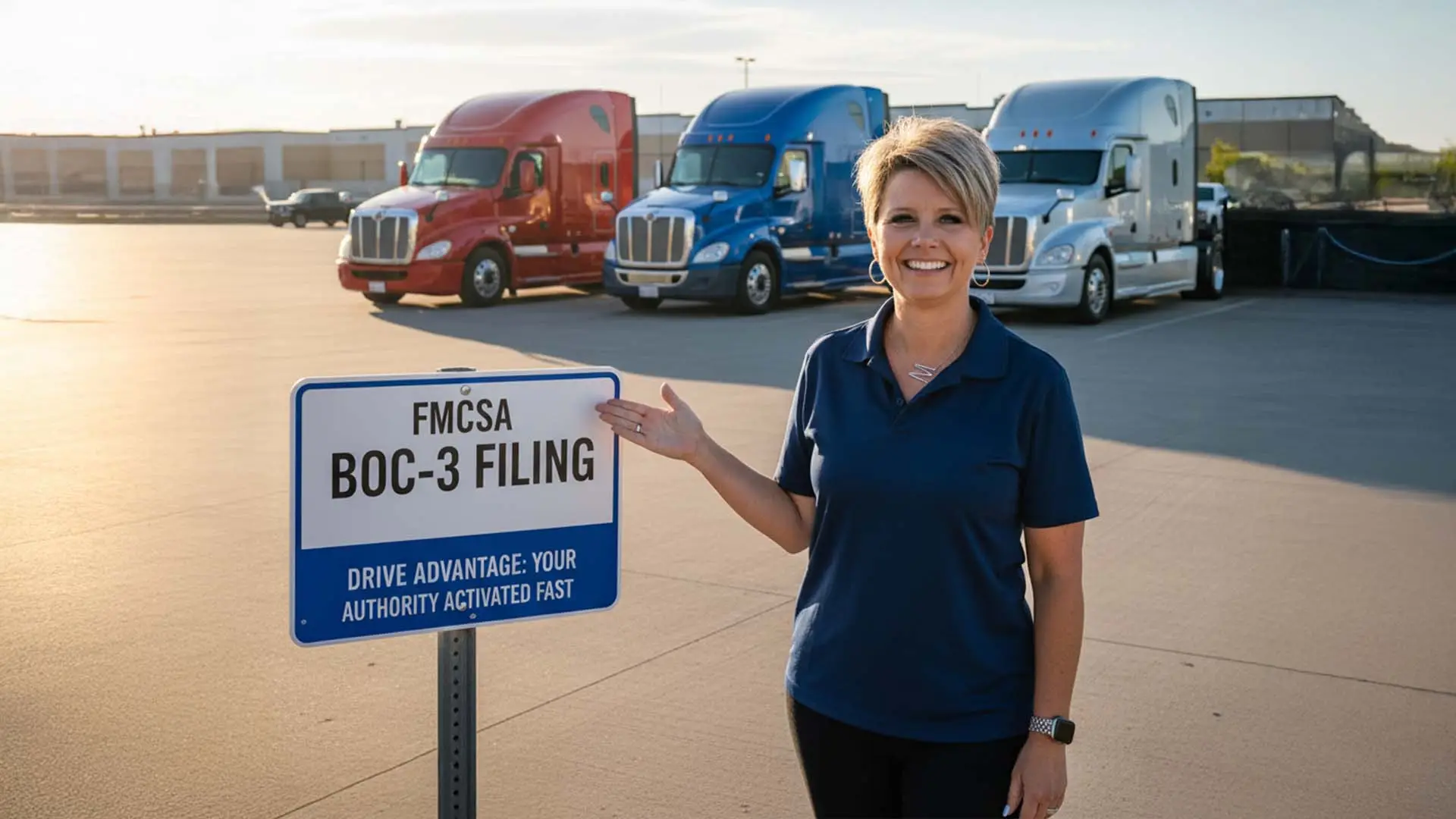What Does “New Authority” Mean for Truck Insurance?
FMCSA Insurance Requirements for New Carriers
Before your authority becomes active, you must meet the Federal Motor Carrier Safety Administration (FMCSA) insurance requirements – otherwise the FMCSA will not activate your authority. These rules are in place to protect you, your clients, and the public. Key requirements include:
- Minimum Liability Coverage: If you’re running for-hire interstate, you’re required to carry at least $750,000 in liability coverage—but depending on what you haul (like certain freight or hazmat), that limit can go up to $5 million. In reality, most shippers and brokers want to see $1 million in liability before they’ll work with you.
- MCS-90 Endorsement: This is an FMCSA-required endorsement attached to your policy as proof of financial responsibility (basically a guarantee that your insurance will cover federally mandated amounts)
- FMCSA Filings (BMC-91/BMC-91X): Your insurer must electronically file proof of your coverage with the FMCSA. Without a BMC-91 filing from your insurance company, your operating authority will not be granted or will be suspended
Essential Insurance Coverages for New Trucking Companies
When getting truck insurance with a new authority, you’ll need several types of coverage to fully protect your operations and meet legal requirements. The best truck insurance for new authority carriers will typically include:
- Primary Auto Liability: This coverage is required by law (minimum $750k as noted) and covers bodily injury or property damage to others if you or your driver is at fault in an accident. Essentially, liability insurance protects the public from damages caused by your truck.
- Cargo Insurance: Covers loss or damage to the freight you’re hauling. While not always required by law for all commodities, most clients and freight brokers expect at least $100,000 in motor truck cargo coverage for general freight (and higher for specialized freight)
- Physical Damage: This coverage repairs or replaces your own truck and trailer if they’re damaged in a collision, fire, theft, vandalism, or other incidents. Physical damage insurance is usually broken into collision and comprehensive portions and is especially important if you have a loan on the vehicle.
- General Liability: Separate from auto liability, general liability protects your business from other risks (like someone getting injured at your office or a loading dock incident not directly caused by driving). It’s often recommended to have this coverage to round out your protection.
- Excess/Umbrella: This provides extra liability coverage beyond your primary limits. New carriers sometimes invest in an umbrella policy to satisfy brokers who require higher limits or to add a safety net for large claims.
Step-by-Step: How to Get Truck Insurance for a New Authority
Getting commercial truck insurance for new drivers and carriers involves a series of steps. Here’s a roadmap to ensure you secure the coverage you need:
- Apply for Your Authority: First, obtain your USDOT number and MC number through the FMCSA registration process. You’ll need an active application or pending authority to start arranging insurance.
- Prepare Your Information: Be ready to provide details to insurers – including your DOT/MC numbers, the type of freight you’ll haul, your operating radius (where you plan to drive), your drivers’ experience and driving records, and details about your truck (year, make, model, VIN). This information affects your quote.
- Work with a Specialized Agent: It’s wise to find an insurance agent or broker who specializes in new authority trucking insurance. Not all insurance companies will insure new ventures, so an experienced agent (like Driver Advantage) can connect you with carriers that accept first-year trucking operations. They’ll understand the unique needs of first-time owner-operators and can often shop multiple insurance companies on your behalf to find the best rate.
- Choose the Right Coverages: Make sure your policy meets the FMCSA’s minimum requirements and any additional coverage that your customers or state might require. For example, you’ll likely opt for $1 million liability to be safe, and don’t forget cargo insurance limits that match the value of loads you plan to carry. An expert agent will help customize the policy so you’re not underinsured or overpaying for coverage you don’t need.
- Secure the Policy and File Insurance: Once you select a policy, your insurer must file proof of insurance (Form BMC-91) directly with the FMCSA to activate your authority. Ensure your policy includes the MCS-90 endorsement and all paperwork is in order. Typically, after the insurance filings are submitted, it takes about 3–5 business days for the FMCSA to review and grant your active authority.
- Maintain Compliance: After you get insured and your authority is active, stay on top of your insurance. Avoid any lapses in coverage – if your insurance is canceled or expires, the FMCSA can revoke your authority, halting your operations. Plan ahead for renewals each year and update your policy if you add trucks, change the type of cargo, or expand your routes. Keeping your agent informed about changes will ensure you’re always properly covered. including keeping your MCS-150 update current to avoid data discrepancies.
How Much Does Truck Insurance Cost for New Authorities?
Several key factors drive the cost of commercial truck insurance for new drivers and carriers:
- Driving Record: Your record (and your drivers’ records, if you have any) has a huge impact. Clean records with no accidents or violations will help lower rates, while tickets or crashes will raise them
- Equipment Value: The value and type of your truck (and trailer) matter. Newer or expensive trucks cost more to insure for physical damage, because they’d be costlier to repair or replace.
- Cargo & Operation: What you haul and where you haul it also influence cost. Hauling hazardous materials or high-value goods requires higher coverage limits and therefore higher premiums. Running long-haul across many states or through congested cities can cost more than doing short regional routes, due to greater exposure to risk.
- Location: Insurers consider where your business is based and where your truck is garaged. Areas with higher accident rates or crime rates can lead to higher insurance costs.
- Business Experience: If you’re a completely new venture with no prior business insurance history or safety data, it’s seen as higher risk. If you have prior driving experience or safety training, that can help.
Tips to Save on New Authority Truck Insurance
:
- Shop Around and Compare Quotes: Don’t settle for the first quote you get. Insurance premiums for new authorities can vary greatly between insurers. Get quotes from multiple companies or use an agent who can do this for you. Comparing options could save you thousands per year in premium.
- Bundle Coverages: If you need multiple coverages (liability, cargo, physical damage, etc.), purchasing them from the same insurer might earn you package discounts. Bundling policies can make your overall insurance program more cost-effective.
- Prioritize Safety and Training: Demonstrating that you prioritize safety can make you a more attractive customer to insurers. For instance, maintaining a clean driving record, taking safety courses, and installing safety technology (like dash cams or telematics) may help reduce rates over time. Some insurers offer discounts for having certain safety equipment or programs.
- Review Customer Requirements: If certain clients or brokers require higher coverage (say $1M liability or specific cargo limits), make sure you meet those but don’t pay for excessively higher limits that you don’t need. Align your insurance to your business needs – this is where an informed agent can advise you, so you’re not paying for coverage that doesn’t add value to your operations.
- Stay Compliant: Keep all your filings and documents up to date. Ensure your MC and DOT information is current and that you renew your policies on time. Lapses in insurance not only risk authority revocation, but any gap will make insurers view you as riskier, potentially raising future premiums. Consistency is key.
Avoiding Common Pitfalls: Be cautious about going with bare minimum coverage. While meeting the legal minimum might get your authority activated, it could leave you ineligible for better-paying loads or exposed to huge losses if a major accident occurs. Also, don’t assume that once you buy a policy everything is set – double-check that your insurer files the required forms with FMCSA (they usually do, but it’s your business on the line, so confirm it). And remember to check if your state has any extra insurance rules for intrastate trucking above the federal minimums.
More Than Just Insurance – Why Choose Driver Advantage
Here’s what sets Driver Advantage apart for new trucking companies:
- Comprehensive Coverage Solutions: We consider all aspects of your operation when recommending coverages. Whether you need motor carrier coverages (like liability, cargo, excess), commercial policies for your business, or even personal insurance (home, auto, etc.), our agents can tailor a program that covers your exposure from all angles. This holistic approach means you get the right options for your specific needs.
- Industry Expertise & Guidance: Our team stays on top of current laws and regulations in the ever-evolving transportation industry. We’ll not only help you get insured, but also ensure you understand the requirements (such as filings, state-specific rules, and safety best practices) to remain profitable and stress-free. Driver Advantage revolves around safety – our goal is to build a long-lasting relationship, so you can trust your agent as an advisor, not just a salesperson.
- Client Success Stories: We pride ourselves on going the extra mile for our clients. For example, one customer, Ebrahim A. of 5 Star Express, noted that the Driver Advantage team helped his company secure affordable insurance, manage monthly and quarterly road tax filings, and even introduced him to a reliable factoring company to improve cash flow. By simplifying compliance tasks and educating clients, we make sure you stay informed and set up for success. Our services are not only cost-effective but also aimed at making your life easier as an owner-operator.
- Fast Quotes and Personalized Service: If you already know what coverages you need, we’ll help you get insured quickly – just fill out an application and we’ll provide a quote. If you’re not sure where to start, our agents will walk you through it. You can always give us a call at 208-274-8113 and we’ll create a policy specifically tailored to your operation. With Driver Advantage, you get friendly, professional support from people who understand trucking.
Ready to Get Insured and Keep on Trucking?
Getting the right truck insurance for your new authority is one of the first big steps in launching your business. It not only satisfies legal requirements but also protects your livelihood. Before locking in your policy, compare your quote with other states using our states we serve resources or explore options for affordable truck insurance to keep costs manageable.
By understanding the process and partnering with a dedicated trucking insurance specialist, you can start your new venture with confidence fully covered and ready to roll.



